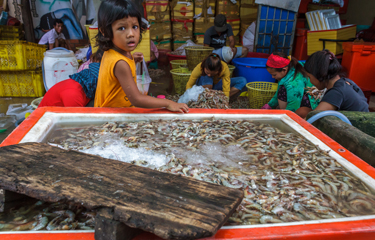The Thailand Department of Labor Protection and Welfare is partnering with seafood industry groups on an effort to eliminate the use of forced labor in the sector.
On 29 March, the Thai government signed non-binding memoranda of understanding with several industry associations, under which the companies will make public their policies to combat forced and child labor, establish mechanisms to deal with complaints, and undergo audits on the quality and effectiveness of their labor standards.
Thai Labour Minister Suchart Chomklin said the country hopes to better its international reputation and improve its ranking in the U.S. State Department’s U.S. Trafficking in Persons Report, which is due out later this year. The 2020 version of the report, released in June 2020, listed Thailand at Tier 2, with a specific warning that Thailand’s fish and shrimp products “are suspected of being produced using child or forced labor.”
Chomklin downplayed the U.S. estimate that around 177,000 children aged five to 17 are engaged in child labor in Thailand.
“Sometimes business operators do not intend to use child labor, but children follow their parents [to work] and photos are taken, for instance, of children picking up shrimps and are seen as using child labor,” Suchart told Reuters.
The Seafood Working Group, a global coalition of labor, human rights, and environmental non-governmental organizations, in July 2020 urged the U.S. to downgrade Thailand in its human trafficking ranking, claiming the Southeast Asian nation has not done enough to combat forced labor issues.
Human Rights and Development Foundation Director Papop Siamhan criticized the non-binding nature of the newly signed MoUs and called on the Thai government to introduce a modern slavery law similar the one recently passed in Australia. That law instituted a modern slavery reporting requirement for larger companies.
However, Thai Shrimp Association President Somsak Paneetatyasai opposed the mandating of any reporting requirements.
“There’s no need to force [business operators], since everyone is already aware of this issue,” he said.
Photo courtesy of Jeff Cagle/Shutterstock







